Navigating the complexities of tech contracts can often feel overwhelming, especially when unexpected changes are proposed. It's crucial to stand firm on the terms that have been carefully negotiated and agreed upon, as they play a fundamental role in protecting your interests. Refusing alterations doesn't mean turning a blind eye to collaboration; instead, it opens the door for constructive dialogue about mutual expectations. If you're interested in learning how to craft a thoughtful letter to refuse those changes while maintaining a good relationship, read on!

Clear Statement of Position
Tech firms often face contract negotiations that involve terms affecting service delivery, pricing, or liability. Maintaining clarity on these non-negotiable aspects is crucial. When addressing a request for changes in contract terms, emphasize the importance of current stipulations such as service level agreements (SLAs) that guarantee uptime (typically 99.9% for cloud services) and confidentiality clauses protecting sensitive client information. Also, highlight compliance with regulations like GDPR (General Data Protection Regulation) to ensure data protection standards remain intact. Adhering to these established terms guarantees uninterrupted service quality and legal safeguard integrity.
Justification of Current Terms
The existing terms of the technology contract, established in 2021, meticulously outline the responsibilities of both parties, ensuring clarity in obligations and expectations. These terms reflect industry-standard practices and have been benchmarked against similar agreements in the technology sector, such as those utilized by Fortune 500 companies. Key elements include data protection protocols aligned with GDPR regulations, service level agreements (SLAs) specifying response times of under 4 hours for critical issues, and monthly performance reviews to ensure accountability. Modification of these well-defined terms could disrupt operational effectiveness and lead to potential risks, including non-compliance with legal regulations or increased liabilities. Stakeholder expectations and financial implications have also been analyzed, considering the existing market conditions and our strategic objectives for 2024. Changing the contract could also impact our partnership stability, given our history of successful collaboration and mutual benefit, which has spanned over three years.
Consistency with Company Policy
In the realm of business technology, maintaining consistency with company policy is crucial for operational integrity. Contracts governing technology partnerships often include terms that ensure accountability and protect proprietary information within organizations. For instance, non-disclosure agreements (NDAs) can safeguard sensitive data throughout collaboration, while service level agreements (SLAs) define performance benchmarks for tech services, ensuring quality and reliability. In situations where proposed changes to a tech contract may conflict with existing policies, it is essential to reinforce the necessity of adhering to established guidelines. This not only preserves the organization's commitment to compliance but also fortifies relationships built on mutual understanding and trust in the rapidly evolving tech landscape. Moreover, clear communication regarding the implications of contract modifications can mitigate risks associated with unintended consequences.
Potential Impact and Risks
Refusing changes in technology contract terms can have significant implications for both parties involved. Altered terms may introduce risks such as increased financial liabilities or shifts in service level agreements (SLAs), potentially affecting business operations. For instance, changes in data security clauses could expose a company to cyber threats if the revision weakens protections for sensitive information. Additionally, modifications regarding software updates and maintenance schedules could lead to system vulnerabilities if critical patches are not applied timely. Furthermore, any shifts in termination clauses might leave a business vulnerable to unscheduled contract expirations, jeopardizing continuity of services. Evaluating these potential impacts and risks is crucial for ensuring the long-term stability and security of technological partnerships.
Offer for Further Discussion
Technology contracts often contain specific terms and conditions that govern the partnership between the involved parties. In situations where there is a request to change these terms, careful consideration is essential. Most contracts might address scope, pricing, or responsibilities regarding service level agreements. Many organizations establish parameters indicating limitations to modifications, such as requiring mutual consent or formal documentation. In cases where proposed changes are deemed unacceptable or misaligned with strategic objectives, formally declining the request while offering an opportunity for further discussion can maintain professional relationships. Detailed records of previous agreements and communications provide context and justification for refusal, ensuring transparency. Documenting responses outlining specific concerns regarding risks involved or potential impacts on existing deliverables is important. Encouraging a face-to-face meeting or a consultation to explore alternatives can foster understanding while preserving a collaborative spirit. Clear communication and respect for the established relationship help navigate such delicate situations effectively.
Letter Template For Refusing Change In Tech Contract Terms Samples
Letter template of denial for proposed amendments in technology agreement
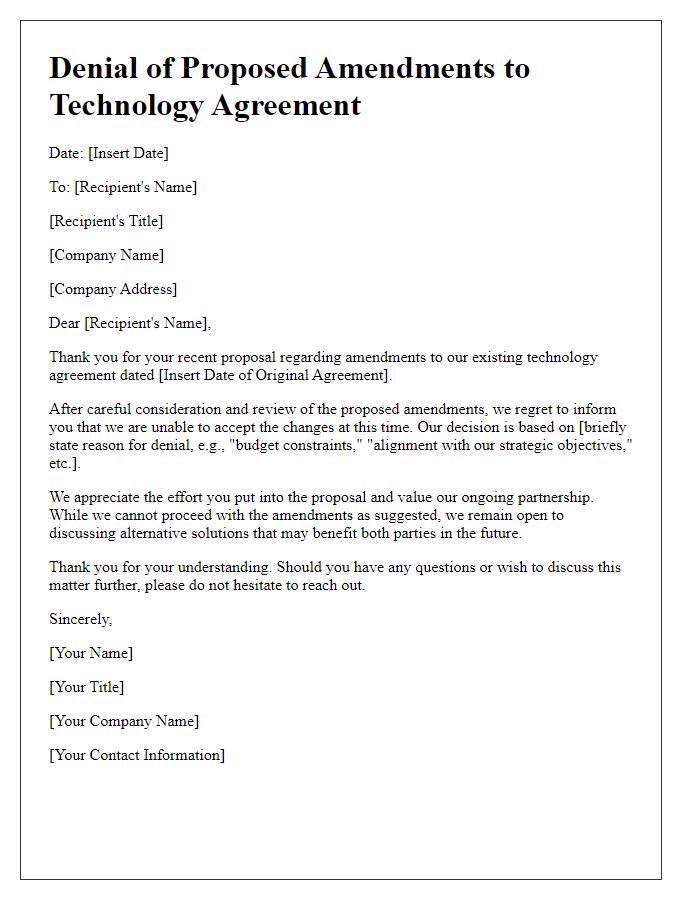
Letter template of resistance against changes in tech contractual obligations
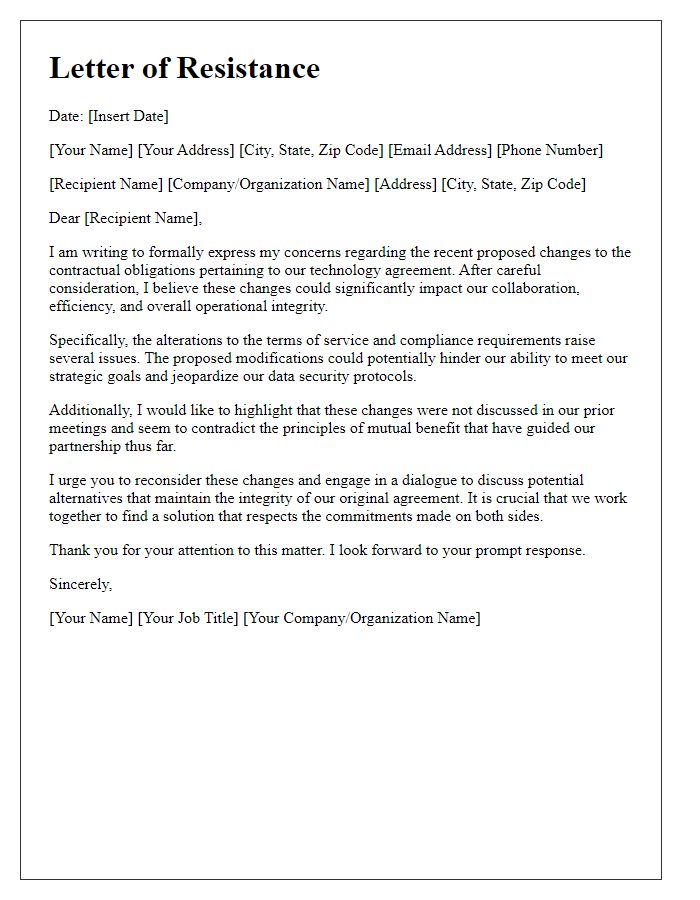
Letter template of non-acceptance for updates in software agreement terms
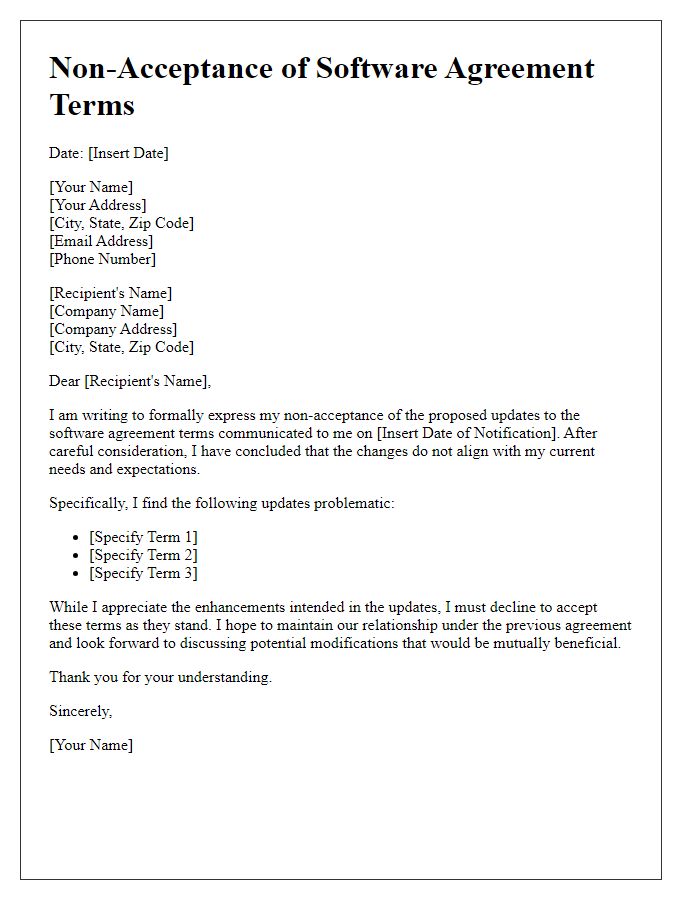
Letter template of refusal regarding shifts in tech partnership conditions
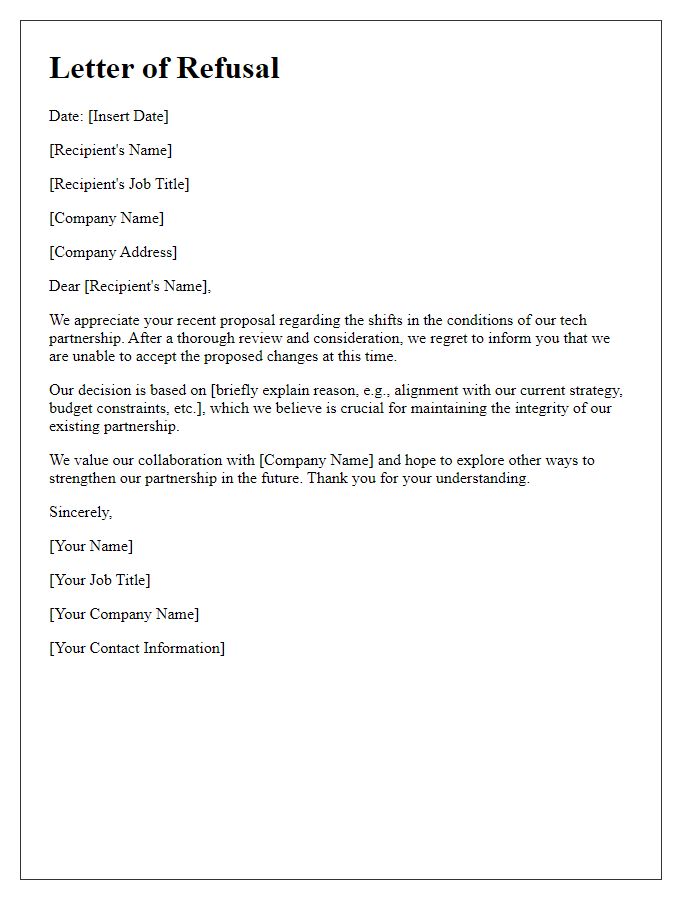
Letter template of dissent against proposed changes in tech contract stipulations
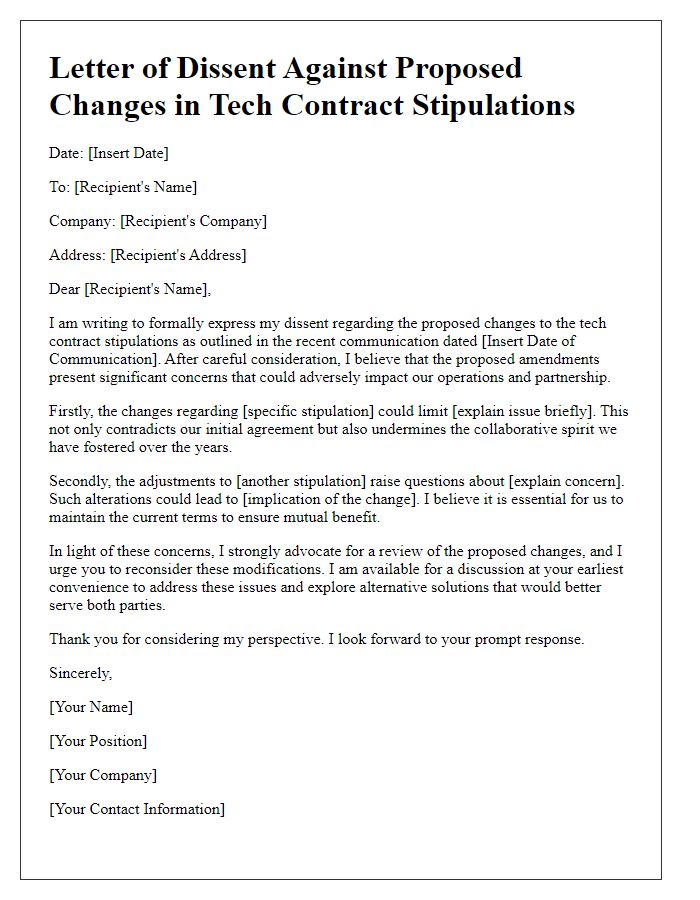

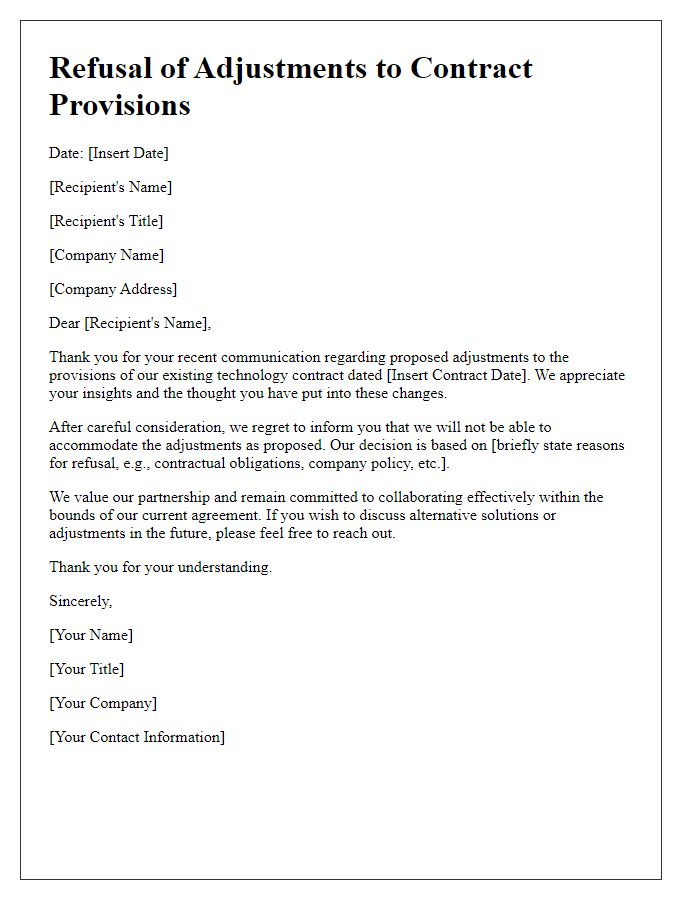
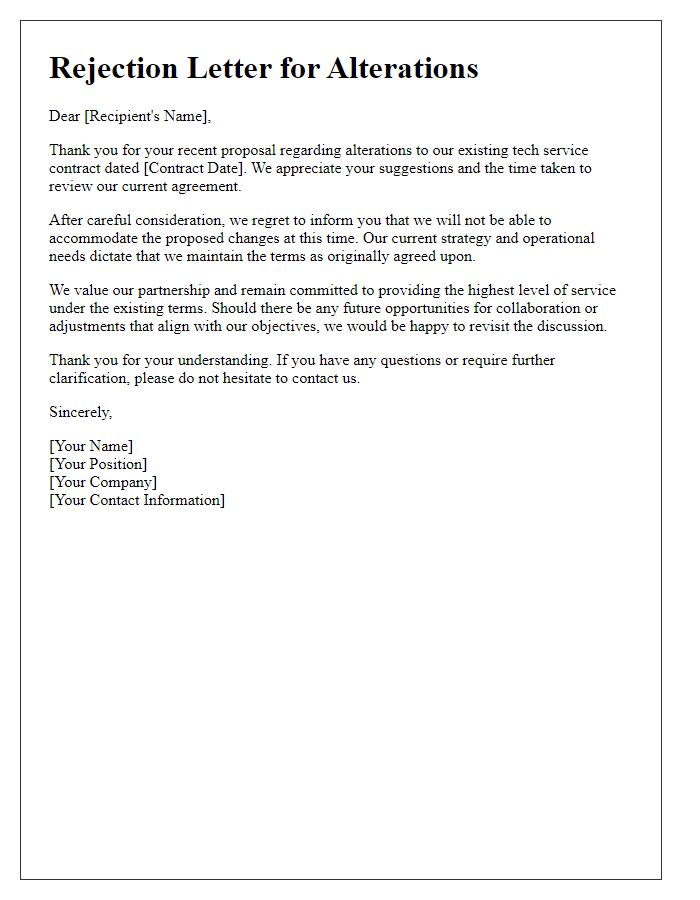
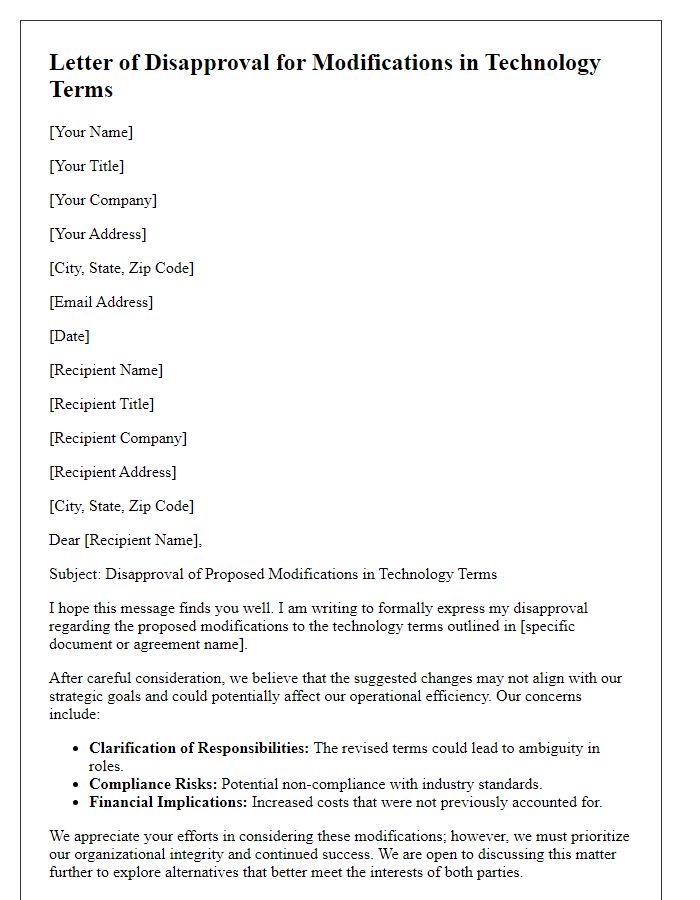
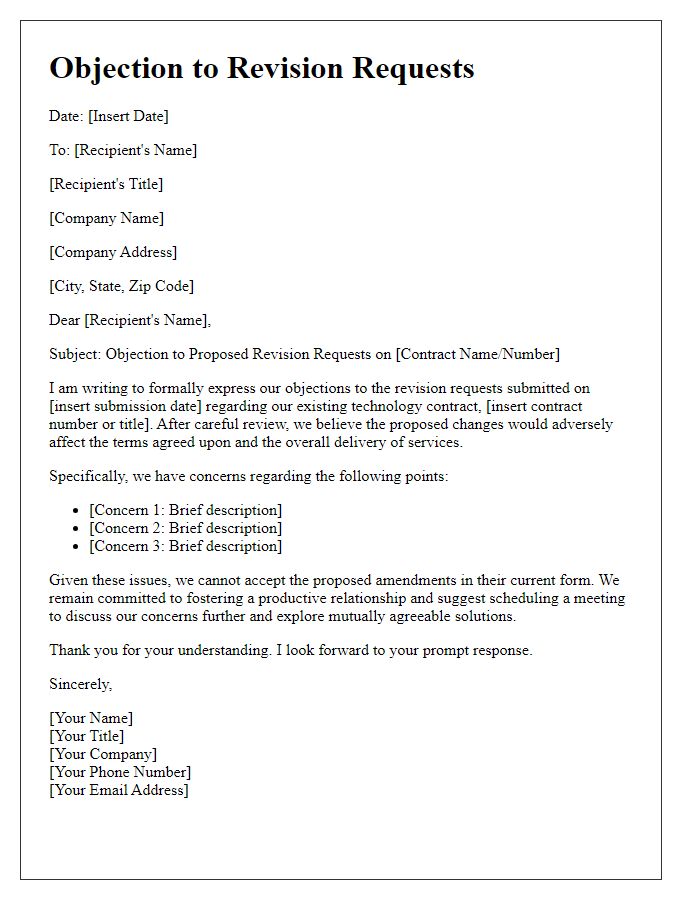
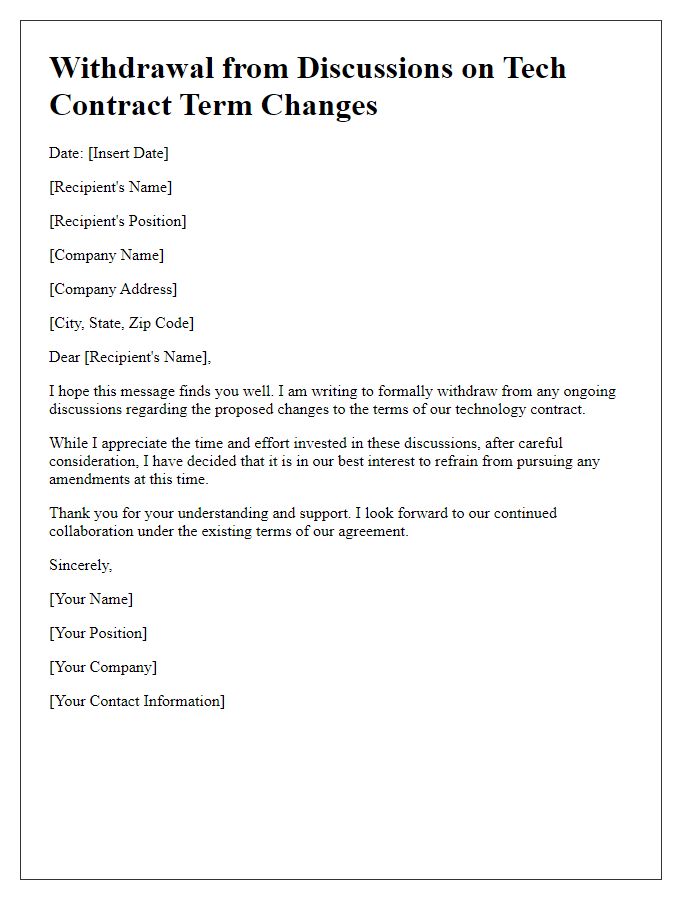


Comments